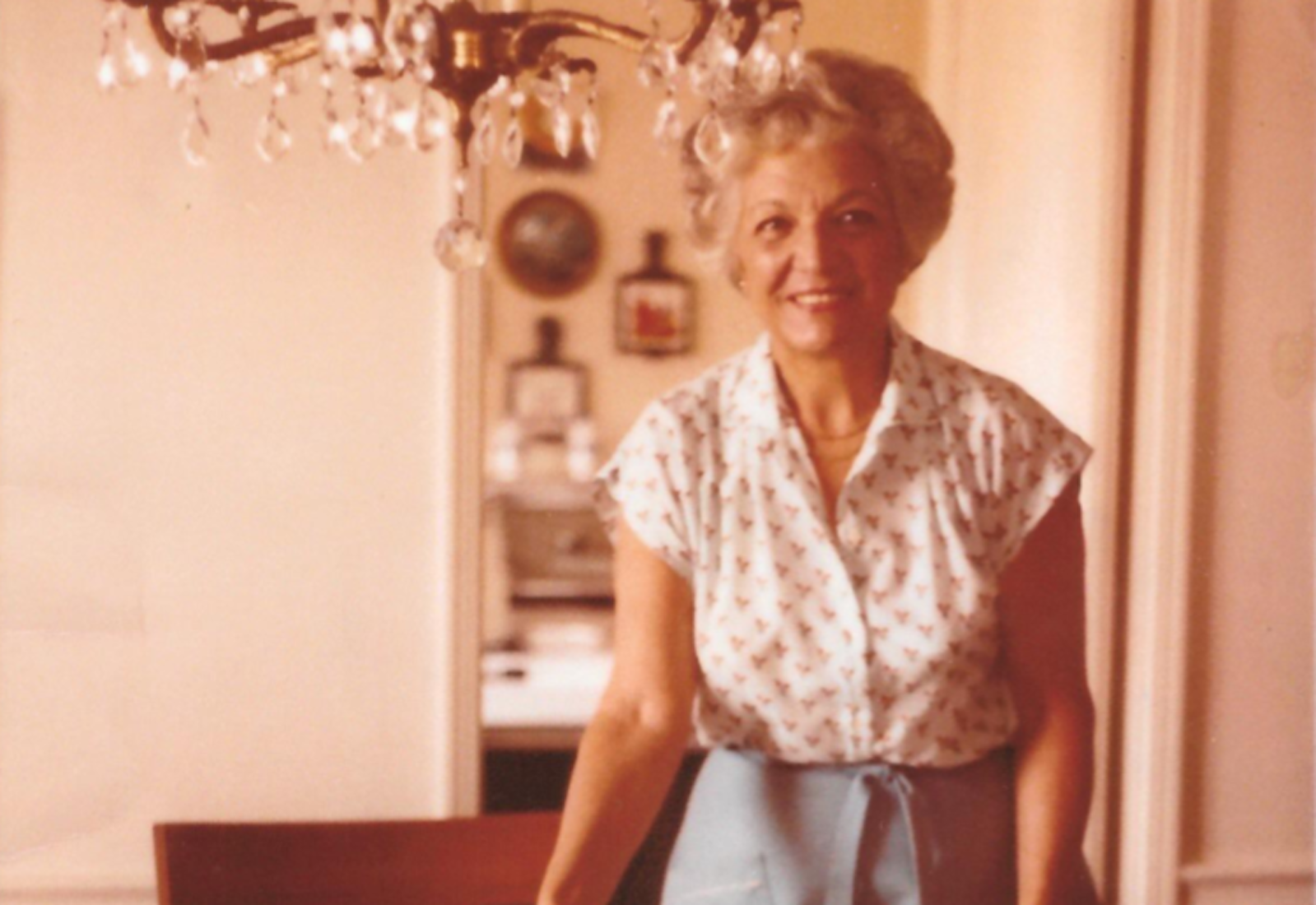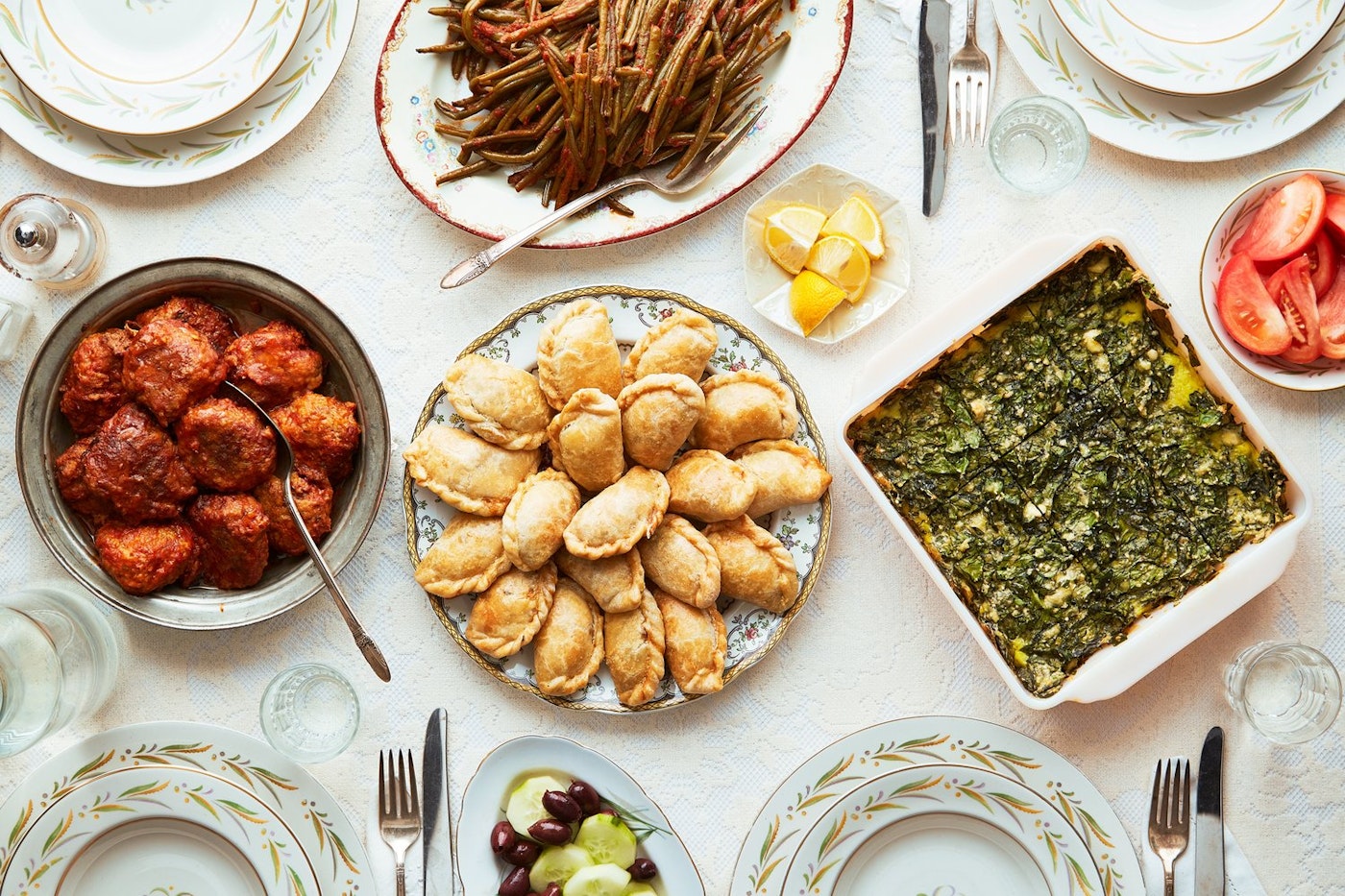Shared by Victoria Granof


Food stylist Victoria Granof remembers cousins from a vast family network in France, Venezuela, Peru, and the U.S. appearing at her dinner table in Los Angeles when she was little. The visiting relatives, “were always modified by their parent’s names,” she explains, like aunt Regina’s Albert and aunt Alegra’s Albert.
In her family, newborns are named for the living — a tradition common in some Sephardic communities — meaning many relatives share their names. Her great-great-grandmother was Victoria Sarah, while her great-grandmother was Rachel Victoria, her grandmother Victoria Rachel, her mother Leah Victoria, and she is Victoria Leah. “It’s really complicated,” she concedes.
It wasn’t just names that were shared across this family tree, it was recipes, some from southern Italy when it was under Spanish control, and others from Turkey where her family lived for generations.
Victoria remembers a particular dinner when her cousin Arlet came to visit from Paris. Victoria’s mother made an elegant, mid-century American meal, while her grandmother, who she called nonie, brought a second dinner of Sephardic recipes in Corningware over to the house — much to the embarrassment of Victoria’s mother who thought it wasn’t sophisticated fare.
The Sephardic food was left in the kitchen, at first, and “There was kind of a disconnect there until that food came out,” Victoria explains. When it was served, it was clear that everyone at the table was family, she adds. It sparked memories that Arlet shared of other relatives making the same recipes and the days after World War II when they replaced expensive walnuts in sweets called travados de muez with more economical breadcrumbs.
Victoria didn’t always speak the same language as the relatives who visited, she says, but they felt united by the food.
The recipes like those for spinach fritada and meat-filled bourekas were nearly “unchanged for 500 years,” she says. They’re “almost exactly unchanged to what you would get in Spain or Portugal today.” Though, she adds, the name changed from empanadas to bourekas when the family, like many Sephardic Jews, moved to the Ottoman Empire. Others likely joined the family repertoire in Turkey like stuffed grape leaves called yaprak and leek and beef patties called keftes.
Victoria learned to make them from her grandmother growing up and when she lived a block away from her in her 20s. Determined to pass them on to the next generation, Victoria started to write a cookbook for her nieces after her grandmother passed away. As she made the recipes, though, some didn’t taste the way she remembered them. She called her uncle and asked what she was doing wrong. He asked about her ingredients. She had replaced fatty meat from the supermarket with grass-fed beef, and sourced the best vegetables she could find. That was the problem, he said. It’s not how Victoria’s grandmother cooked.
“It never occurred to me that better isn’t better,” she says. Some things simply aren't meant to be changed.
